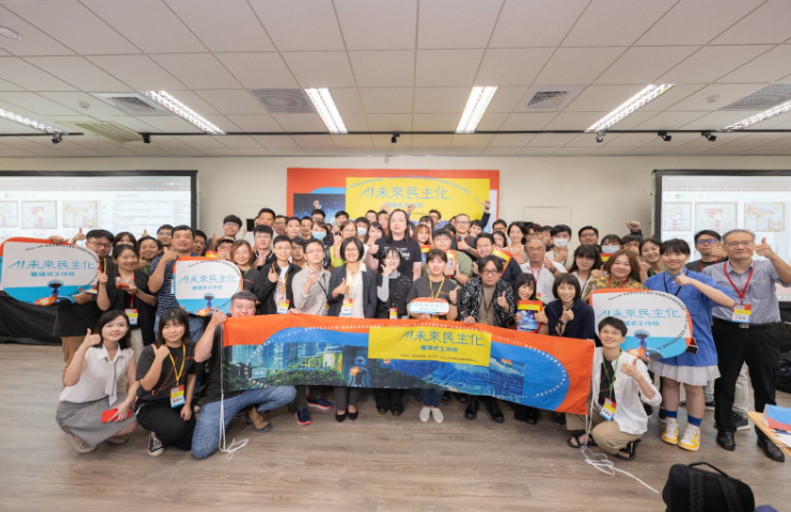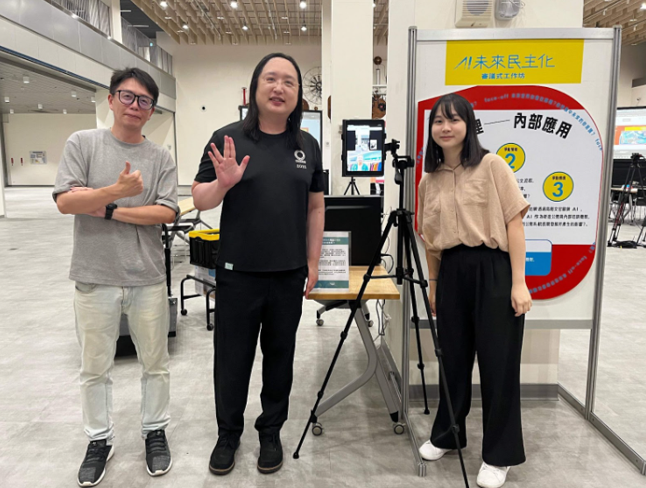Against the backdrop of recent developments in Artificial Intelligence (AI), the Ministry of Digital Affairs (MODA) invited National Chengchi University’s Centre for Innovative Democracy and Sustainability (CIDS), the Centre for Innovative Democracy (CID) and the International College of Innovation (ICI) to jointly organize two deliberative workshops called: ‘Democratizing AI Futures.’ As the name implies, the purpose of the workshops was to ensure that the application of AI aligns with the public interest. During the event, participants discussed how to respond to the rapid development of generative AI. Through public participation, the organizers aim to broadly explore societal needs and collectively contemplate the direction of AI development. The workshops took place on 8/26 and 9/2 (2023) in Taipei and Tainan.
CID has long been involved in deliberative governance and assisted MODA in establishing the discussion framework and deliberation model for the workshop. Combining key findings about the societal impacts of AI from international and national research with public opinions collected from MODA’s plois.tw platform, CID established the six main discussion points for the workshops, including governance, regulatory mechanisms, data transparency, recognizing misinformation, the redefinition of intellectual property rights, as well as issues related to education and knowledge. The CIDS initiated the event by staging a performance that engaged participants in the main topics, designed several scenarios to guide the discussion, and acted as facilitators to stimulate diverse and in-depth discussions. During these discussions, CIDS recorded the different opinions into organized meeting notes and identified possible policy solutions.
The organizers collaborated with Assistant Professor Owen Lu and junior student Tiffany Hsu from ICI to develop one of the digital interactive exhibits: ‘Face Off’. They developed a generative AI-powered application that can transform a participant’s selfie into a picture of them in a futuristic scenario. The program uses a cutting-edge text-to-image generative AI model, face detection technology, face reconstruction technology, and image generation technology. The exhibit allowed participants to experience the capabilities and risks of generative AI. As prescribed by the Executive Yuan’s guidelines for the application of generative AI, the program ran on an independent network. Minister Audrey Tang stated that this was the first instance of a government-sponsored generative AI application that runs on an independent network.
Furthermore, Owen and Tiffany used AI to integrate the meeting notes from the two workshops. They employed speech-to-text and summarization technology to automatically annotate the key points of the discussions and generated word clouds to provide a clear overview of the discussed topics. This AI-powered analysis also allowed them to discover discrepancies between the discussions in Taipei and Tainan. In Taipei, the discussion mostly focused on addressing the ethical issues posed by AI, while the Tainan session focused more on practical AI applications and the law’s ability to keep up.
After the workshops concluded, Owen and Tiffany also used AI to generate images based on the conclusions of the discussions. The combination of the narrative and the AI generated images made the deliberative workshops even more interesting.








